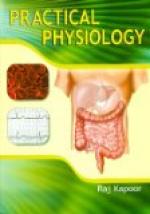95. Physical Exercises in School. Physical exercises of some sort, then, should be provided for pupils in our schools, especially in large towns and cities, where there is little opportunity for outdoor games, and they should form a part of the regular course of study. The object should be the promotion of sound health rather than the development of muscle, or performing feats of agility or strength. Exercises with dumb-bells and wands, or even without any apparatus, practiced a few times a day, for five minutes at a time, do a great deal of good. They relax the tension of body and mind, and introduce an element of pleasure into the routine of school life. They increase the breathing power and quicken the action of the heart.
[Illustration: Fig. 44.—Physical Exercises as carried on in Schools. (From photographs.)]
[NOTE. “In early boyhood and youth nothing can replace the active sports so much enjoyed at this period; and while no needless restrictions should be placed upon them, consideration should be paid to the amount, and especially to the character, of the games pursued by delicate youth. For these it would be better to develop the weakened parts by means of systematic physical exercises and by lighter sports.”—Dr. John M. Keating on “Physical Development” in Pepper’s Cyclopaedia of the Diseases of Children.]
If vigorously and systematically carried out, these exercises invigorate all the tissues and organs of the body, and stimulate them to renewed activity. They serve to offset the lack of proper ventilation, faulty positions at the desks, and the prolonged inaction of the muscles. To secure the greatest benefit from physical training in school, it is important that the pupils be interested in these exercises, and consider them a recreation, and not a task[14].
96. Practical Points about Physical Exercise. The main object in undertaking systematic and graduated physical exercises is not to learn to do mere feats of strength and skill, but the better to fit the individual for the duties and the work of life. Exercises should be considered with reference to their availability from the learner’s standpoint. The most beneficial exercises ordinarily are the gentle ones, in which no strain is put upon the heart and the respiration. The special aim is to secure the equal use of all the muscles, not the development of a few. The performance of feats of strength should never come within the scope of any educational scheme. Exercises which call for sustained effort, violent exertion, or sudden strain are best avoided by those who have had no preparation or training.
Regular exercise, not sudden and occasional prolonged exertion, is necessary for health. The man or woman who works in an office or store all the week, and on Sunday or a holiday indulges in a long spin on the bicycle, often receives more harm than good from the exertion. Exercise should be taken, so far as is convenient, in the open air, or in a large and well-ventilated room.[15]




